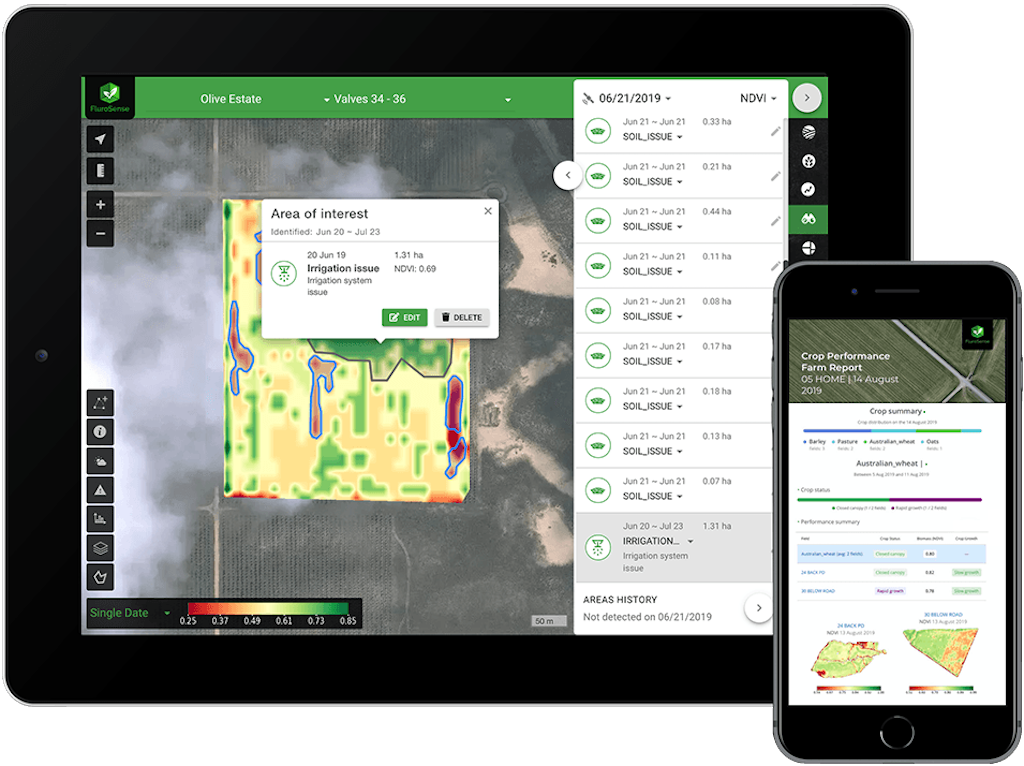Ag-Tech FluroSat Wins Future Food Asia 2020 Award, Japan’s DAIZ & Thailand’s Let’s Plant Meat Score Plant Protein Prize
4 Mins Read
A number of exciting food and agri-tech startups in Asia-Pacific have been recognised for their disruptive and sustainable solutions to tackle our broken food system. Announced at the recent Future Food Asia conference, Australian tech-enabled full crop cycle analytics provider FluroSat won the top Future Food Asia 2020 Award, while next-generation plant-based startups Let’s Plant Meat and DAIZ were selected by Bühler and Givaudan for the Plant Protein Prize.
Hosted virtually and in venues across the world, the Future Food Asia 2020 conference took place between September 21 to 25, where the winners of the awards were announced along with dialogue and discussions about the most pressing challenges in our food system and the opportunities for solutions. This year marked the fourth year of the award, and saw nearly 200 contenders from across 18 countries in the Asia-Pacific participate with 11 finalist startups making it to the live pitch to over 600 industry leaders, investors and experts.
Winning the grand Future Foods Asia 2020 Award was FluroSat, a Sydney-based startup providing analytics, reports and alerts on all aspects of crop performance and health, including nutrient requirements and sustainable management practices. It’s flagship analytics engine, FluroSense, currently monitors over 7 million acres of arable land, helping agribusinesses deliver precision agriculture support to their growers and farmers amid the rising challenges posed by climate change and climate-induced weather events.
“FluroSat is very excited to be selected as a winner of the FFAA prize, and establish this important partnership to support our global expansion and bring the climate-smart agriculture decision support tools to farmers and agronomists all over the world,” said Dr Anastasia Volkova, founder and CEO of FluroSat.

Data has the transformative power of making agriculture more sustainable, but Big Data without proper consolidation quickly becomes overwhelming for farmers. This is where FluroSat makes the difference, combining insights from proven science and high level of integration and automation of workflows.
Isabelle Decitre, Co-Founder & CEO of ID Capital
Commenting on the qualities that made FluroSat unique, Isabelle Decitre, the co-founder and CEO of Singapore-based agri-tech investment firm ID Capital and one of the jurors for the competition, said: “Data has the transformative power of making agriculture more sustainable, but Big Data without proper consolidation quickly becomes overwhelming for farmers. This is where FluroSat makes the difference, combining insights from proven science and high level of integration and automation of workflows.”
The event also saw leading food processing and technology company Bühler and world’s largest flavour manufacturer Givaudan present prizes to two startups in Asia – Kumamoto-based DAIZ and Chiang Mai-based Let’s Plant Meat – for their regionally relevant vegan meat alternatives that have commercial potential for the Asian market.
Read: Bühler & Givaudan to open plant-based food innovation centre in Singapore

“Both companies are paving the way to exciting protein options “made-in-Asia” with a focus on Asian consumers and cuisines. The two approaches are hinting at the fact that the future of plant-based protein will be diverse: consumers will be able to pick products on criteria as diverse as ingredients, nutrition profiles or cooking applications,” explained Dominique Kull, head of technology at Bühler.
Earlier in June, DAIZ announced that it had raised US$6 million in its Series A round, backed by Japanese state fund A-Five and Mitsubishi’s tech VC arm, which it will use to build one of the biggest plant-based meat factories in the country. Its proprietary product is a raw ingredient called “miracle chip”, which is made out of soybeans and is used to recreate the texture of real meat.
Both companies are paving the way to exciting protein options “made-in-Asia” with a focus on Asian consumers and cuisines. The two approaches are hinting at the fact that the future of plant-based protein will be diverse: consumers will be able to pick products on criteria as diverse as ingredients, nutrition profiles or cooking applications.
Dominique Kull, Head of Technology at Bühler

Let’s Plant Meat made its first market debut in the same month, launching its vegan burger product made from non-GMO soy protein, rice protein, coconut oil, rice bran oil and beetroot extract across major supermarket chains in Thailand. The startup’s products, which retail for half the price compared to imported alternatives from the U.S., marks a major step forward in making sustainable protein choices more accessible to mass consumers in Asia.
Future Foods Asia also further announced a prize for Food Resilience, which was awarded by Corteva Agriscience to Indonesian agri-focused fintech company Crowde. The startup empowers local farmers in Indonesia with a farmer-friendly peer-to-peer micro-financing ecosystem that puts them in touch with investors.
“The Crowde team stood out as one that is most closely aligned to Corteva’s purpose of enriching smallholder farmers and workers along the food and agriculture ecosystem to achieve food security and resilience through technology innovation,” said Peter Ford, president of Asia-Pacific at Corteva Agriscience. “We look forward to supporting Crowde in accelerating its development, to support smallholder farmers during and after the pandemic.”
Lead image courtesy of Let’s Plant Meat / FluroSat / DAIZ.




